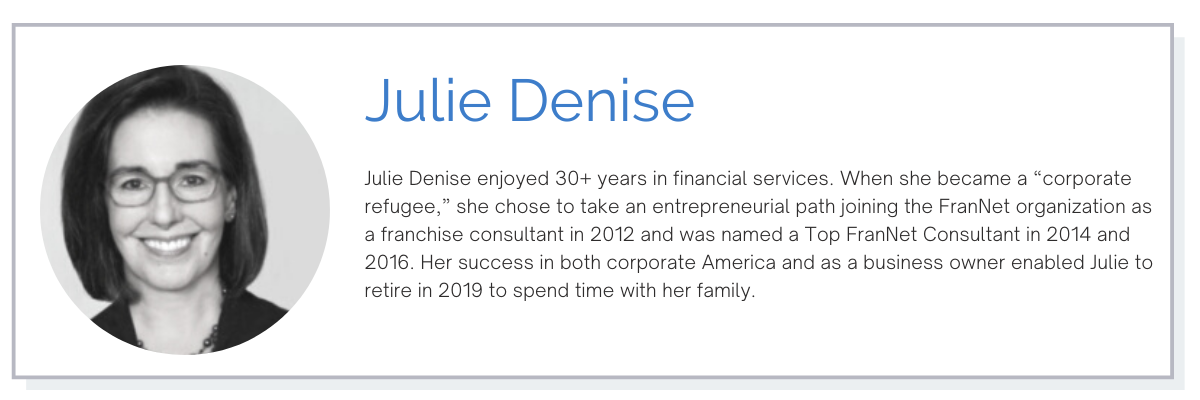
“I love paying royalties,” said no franchise owner ever, but the most successful business owners see the win-win, in terms of both time and money.
In my role as a franchise consultant, career transition coach and speaker, it’s a popular question among prospective business owners, “why pay royalties?”
It’s a great question and the answer lies in the calculation of the cost of doing business. Let’s look closer at the basic exchange and why successful franchisees see royalties as an overall smart business strategy.
While there may be a few exceptions, the basic exchange works like this. When you sign on to become a franchisee, you are committing to pay a one-time franchise fee plus ongoing royalties, there may also be other ongoing fees that will be important to factor into your research. In general, ongoing royalties and fees are based on a percentage of gross sales. In return, the franchisee receives the rights use the franchise brand name and trademarks, systems and processes, marketing and advertising support and a plethora of other services. It’s the plethora of other services that really make good franchise systems stand out and outperform the competition.
Stephen Fishman, J.D. of the University of Southern California Law School, sums it up this way,
“If your franchise fee is the cost of joining the franchisor’s business family, royalty fees are the cost of staying in the family.”
What’s great about franchises is they are required by federal law to disclose information on fees and royalties to any prospective buyer before you can sign on, so know what your fees are and what you get for paying them. This disclosure comes in the form of a Franchise Disclosure Document or FDD. Every franchisor has one and every FDD has the same reporting requirements. Visit the IFA’s website to learn more about what’s included in the FDD.
What is commonly misunderstood about royalty payments is that they are inherent in the cost of running a healthy business and are paying for items that you would have to create or pay someone to do. Let’s look at some of the most common costs for just about any business and when you browse this list, consider the cost of researching, purchasing, on-boarding and maintaining just one of these services in your own independent startup.
- Customer acquisition intelligence
- Proven marketing strategies
- Accounting systems
- Initial and continual training
- KPIs, benchmarking & metrics
- CRM & POS systems
- Operations technology
- Competitive intelligence
- Labor recruitment & retention know-how
- Equipment & inventory preferred pricing
- Research & development
- Accountability & focus groups
- National accounts & partnerships
Some Things are Priceless
What’s often overlooked in the list of business support services provided by the franchisor is the culture of teamwork that comes from being a part of a well-run franchise system. In franchising, we call it being, “in business for yourself, not by yourself.” You can’t put a price tag on the shared learning and advice received from your fellow franchisees in a franchise family.
Paying a percentage of your profits to a franchise company may seem on the surface to defeat the purpose of going into business for yourself in the first place, but if you look at it through the lens of a cost/benefit analysis, you might just think about it differently.
The right franchise consultant can not only help you find a franchise that meets your unique criteria, he or she can help you ask the right questions about what those royalties offer you in return and why paying them might be a good decision. The best part is, no fees are attached to my services.
Connect today and let’s talk about the opportunities that are out there for you.

